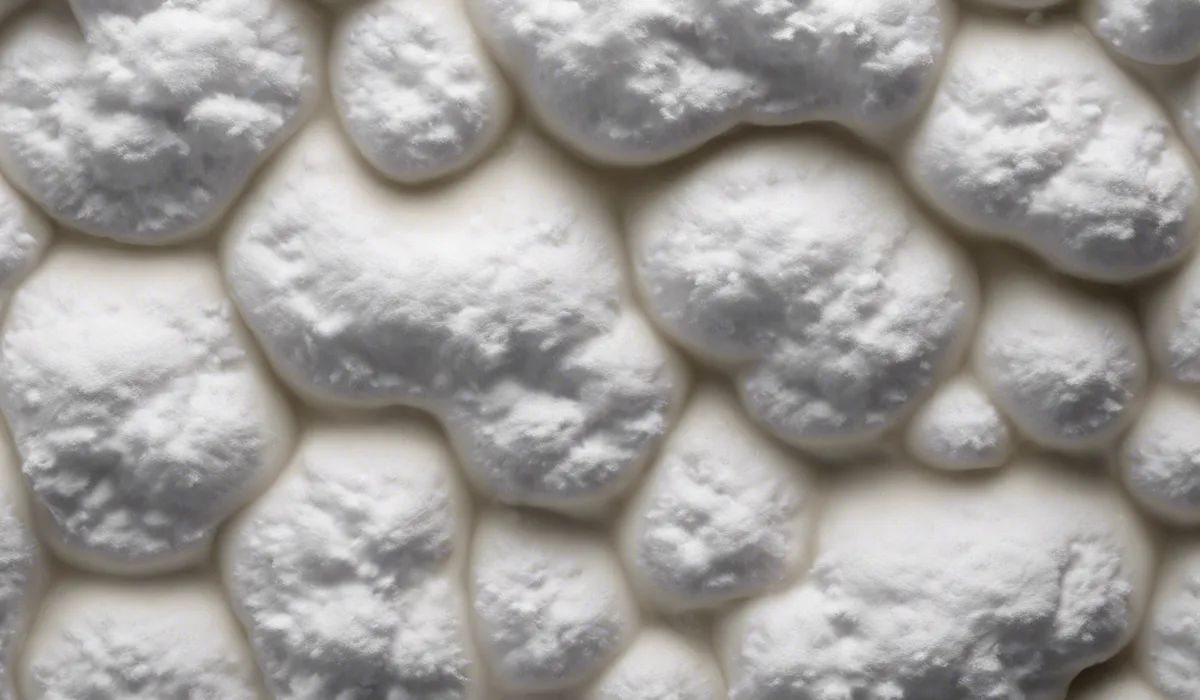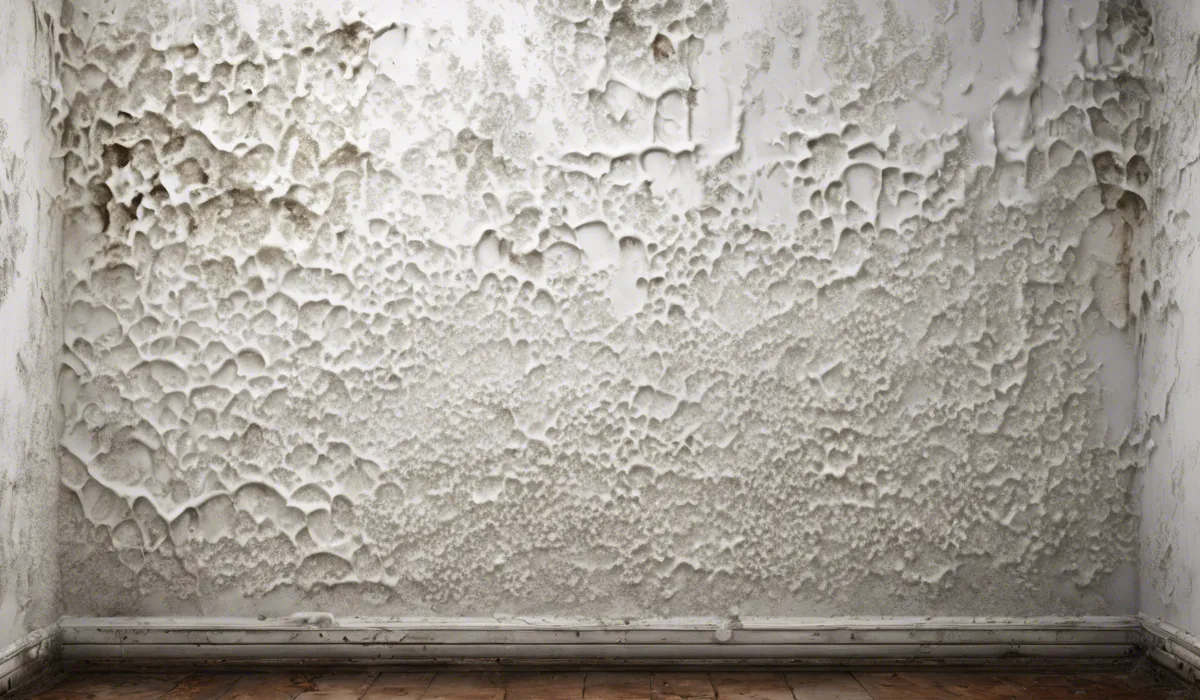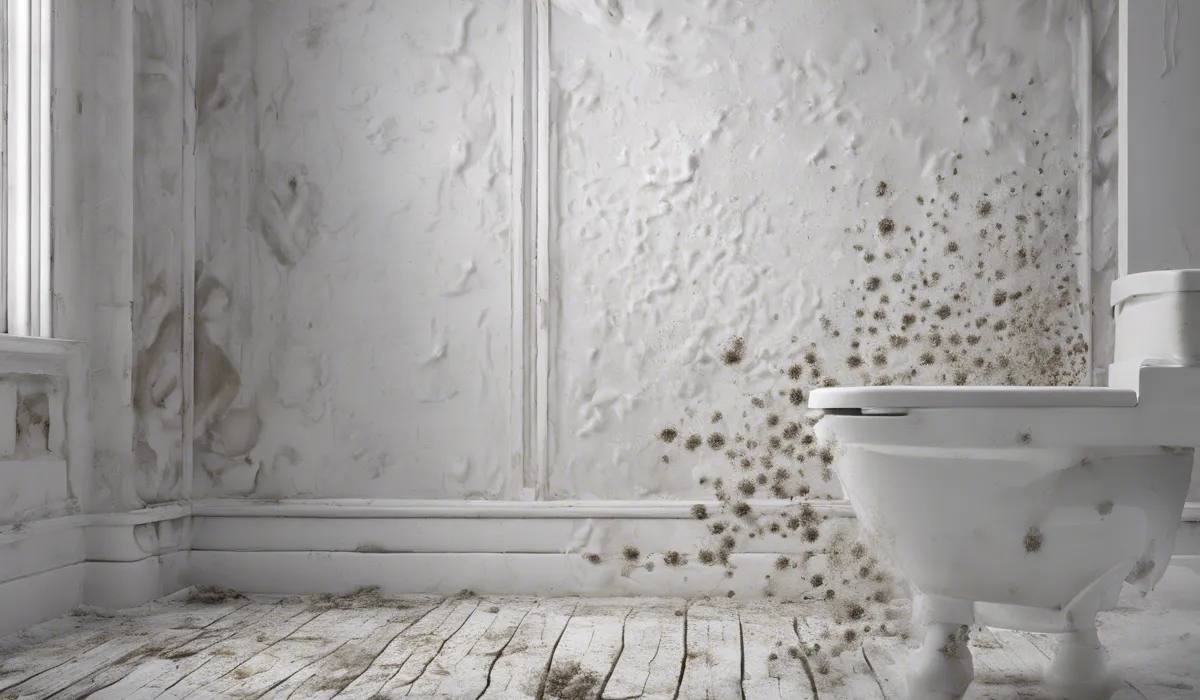Yes, white mold can make you sick. It can cause respiratory issues, allergic reactions, and other health problems, particularly in individuals with weakened immune systems or mold allergies.
Understanding White Mold

What is White Mold?
White mold refers to a variety of mold species that appear white. It is a living organism that thrives in damp, warm conditions.
White mold can grow on various surfaces, from food to drywall.
White Mold Habitat
White mold often appears in places with high humidity. It is found in basements, attics, and bathrooms. It can also grow on wood, paper, and cotton materials.
White Mold vs. Other Molds
While white mold grows in similar conditions to other molds, it can be less noticeable. Black mold, for instance, is more visible and often associated with severe health risks.
Health Impacts of White Mold Exposure

Immediate Reactions to Mold
Short-term effects of mold exposure can include coughing, sneezing, and itchy eyes. Some people may experience headaches or a sore throat after being around mold.
Long-Term Effects for Sensitive People
Those with allergies or asthma may face serious health issues from long-term exposure. This can include chronic respiratory conditions or a weakened immune response.
High-Risk Groups
Children, the elderly, and those with pre-existing health conditions are more susceptible to mold-related illness. These groups should avoid moldy environments.
Prevention and Remediation of White Mold

Mold Growth Prevention
Keeping your home dry and well-ventilated is key to preventing mold. Use dehumidifiers and fix leaks promptly to reduce moisture.
What to Do When You Find Mold?
If you spot white mold, clean small areas with a mold-killing solution. For larger infestations, you may need to remove and replace the affected materials.
Seeking Professional Help
For widespread mold issues or if you’re unsure about DIY methods, it’s best to call in professionals. They have the tools and expertise to safely remove mold.
FAQs About White Mold Health Risks
Can white mold cause health problems?
Yes, white mold can cause health problems such as respiratory issues, allergic reactions, and other health complications, especially in susceptible individuals.
Is white mold dangerous to everyone?
While white mold can be harmful, it poses a greater risk to people with weakened immune systems, mold allergies, or respiratory conditions.
What symptoms can white mold exposure cause?
Exposure to white mold can lead to symptoms such as coughing, sneezing, skin irritation, and watery eyes, particularly in those with mold sensitivities.
How does white mold affect the respiratory system?
White mold can affect the respiratory system by causing difficulty breathing, wheezing, and exacerbation of asthma in affected individuals.
Should people with mold allergies be concerned about white mold?
Yes, individuals with mold allergies should be particularly cautious of white mold as it can trigger allergic reactions and worsen allergy symptoms.
Final Thoughts
White mold poses a health risk, particularly to those with compromised immune systems or mold allergies.
Exposure can lead to various issues, including respiratory problems and allergic reactions. Awareness and remediation are key to preventing the potential adverse health effects associated with white mold exposure.
